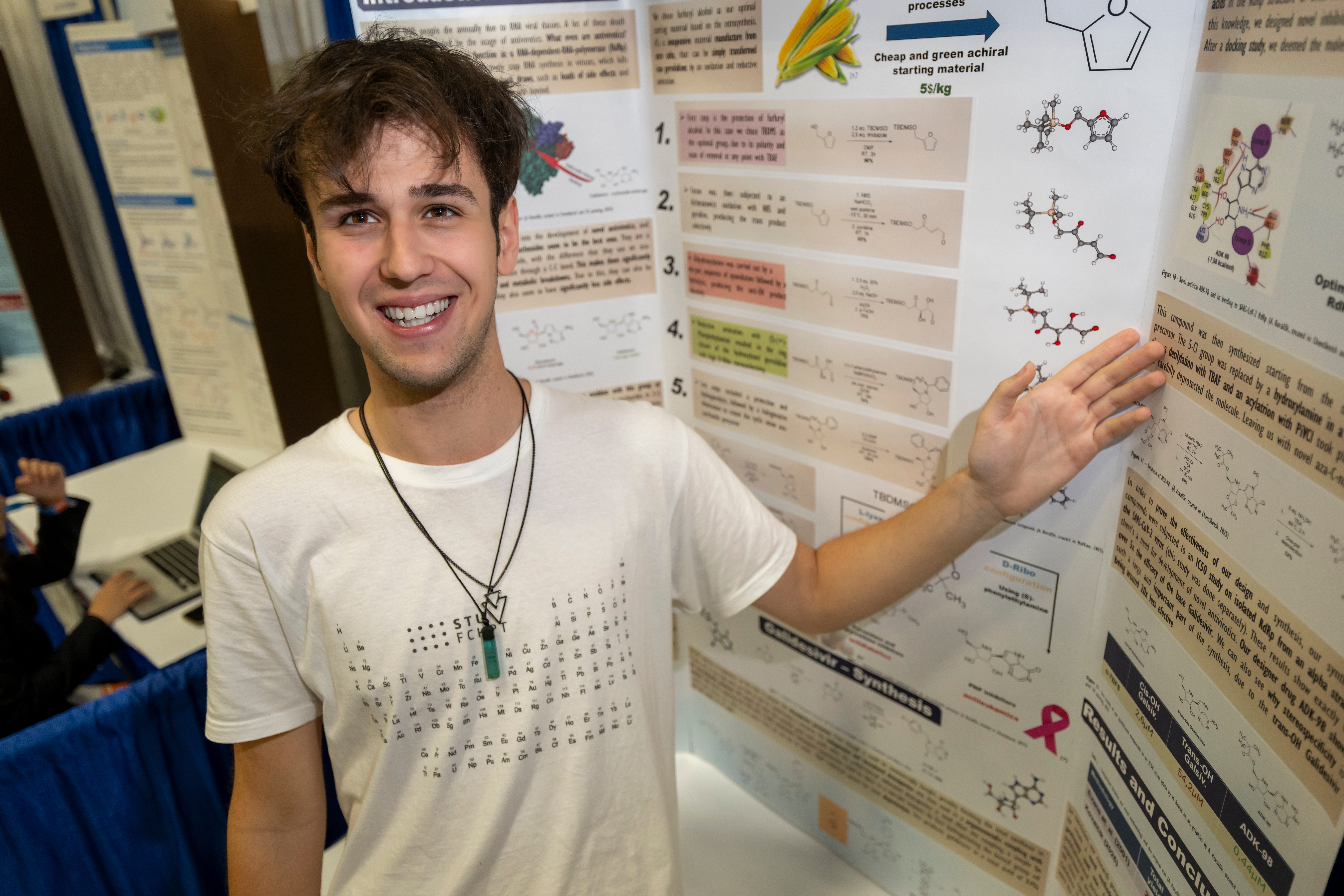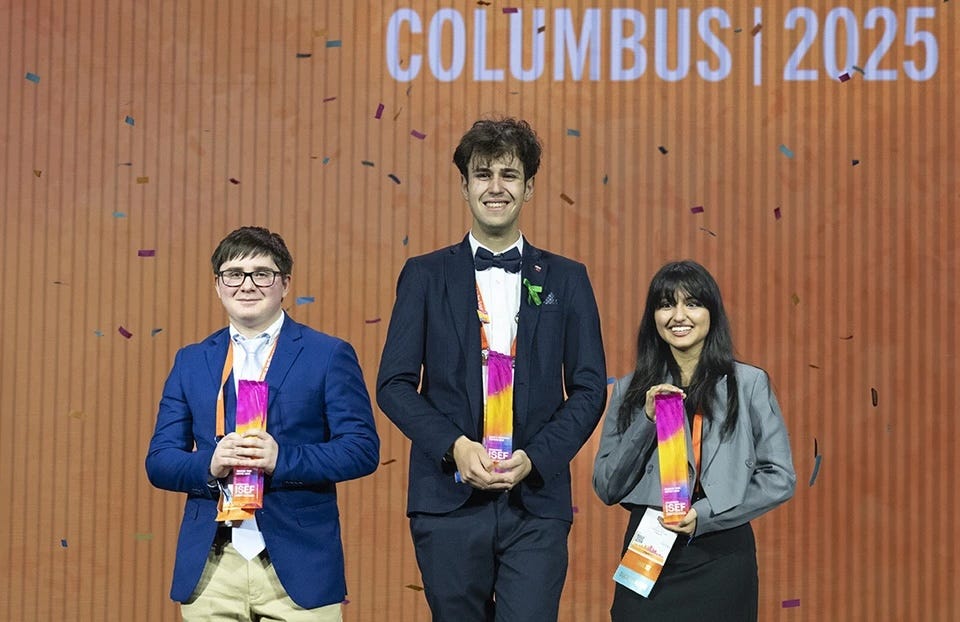
Chris Ayers Photography/Licensed by Society for Science
When Adam Kovalčík flew to Ohio for an international science competition, he did not expect to come home with $100,000.
The 19-year-old from Dulovce, Slovakia won that sum on Friday, though, because he developed a faster and cheaper way to make an experimental antiviral drug called galidesivir, which targets RNA viruses like COVID-19, Ebola, and Zika virus.
“This could be a huge step to help prevent some of these RNA viruses,” Chris RoDee, a chemist and retired patent examiner, told Business Insider.
Early studies have shown galidesivir can attack RNA viruses, but it has not undergone full clinical trials. Kovalčík thinks he can encourage further research by slashing the cost of producing the drug — from $75 per gram to about $12.50 per gram.
That’s because he used corn waste to synthesize twice as much of the drug in just 10 steps, rather than the 15 steps currently required for manufacturing.
Kovalčík even went one step further: He used his method to make a new drug that could also fight RNA viruses.
Kovalčík presented his findings at the Regeneron International Science and Engineering Fair (ISEF) in Columbus, Ohio, this week. The judging committee, which RoDee chaired, chose Kovalčík for the competition’s top prize: the $100,000 George D. Yancopoulos Innovator Award.
“I cannot describe this feeling,” Kovalčík told BI after receiving the award in a lively ceremony on Friday. “I did not expect such a huge international competition to be won by someone from a small village in a small European country, so it was just pure shock.”

Chris Ayers Photography/Licensed by Society for Science
Student research at ISEF does not go through the rigorous peer-review process that studies pass before they’re published in scientific journals.
However, RoDee said that Kovalčík’s chemistry was “really elegant” and his presentation to the judges was “bulletproof.”
From corn husks to antiviral medicine
Kovalčík’s big cost-saving innovation started with corn husks.
Well, it started with furfuryl alcohol, which comes from corn husks and is relatively cheap compared to other starting points for making drugs.
One by one, Kovalčík added chemicals to a flask of furfuryl alcohol in the lab, like building blocks adding to the molecule, until he got a crucial sugar called aza-saccharide. It only took seven steps to get there.
From there, it was only three more steps to get galidesivir.
“He was able to shortcut this entire process,” RoDee said. “He basically halved the number of steps because he just went in through a different door.”
Kovalčík’s process takes five days. The conventional manufacturing method, he said, takes nine days.
Eventually, he produced another drug, too. Based on early computer calculations, Kovalčík thinks his new molecule could be five times as effective as galidesivir against COVID-19 — binding more strongly to enzymes to kill the virus.
Big plans for drugs and perfume
Kovalčík said he’s filed a preliminary patent on his drug-synthesis process.
He also plans to work more with a research group at the Slovak University of Technology in Bratislava, which has supported his project so far.
To be used commercially, Kovalčík’s drug-manufacturing process would have to scale up. At the moment, he said, he’s struggling to find a way to make more than 200 liters of galidesivir.
He also plans to work with the university researchers on improving other drug-synthesis processes.
“They actually have much more designs and much more new drugs to prepare and test,” he said.
Kovalčík’s ambitions don’t end with advancing drug manufacturing, though. He said he also wants to use his chemistry skills and prize money to start a company that manufactures eco-friendly perfumes from corn.
“From the first time I stepped foot into a lab, I knew that I wanted to do something related to chemistry,” Kovalčík said.
Now that he’s won recognition for it, he added, “I feel incredible.”
The post A 19-year-old won $100,000 for inventing a cheaper, faster way to make antiviral drugs out of corn husks appeared first on Business Insider.




